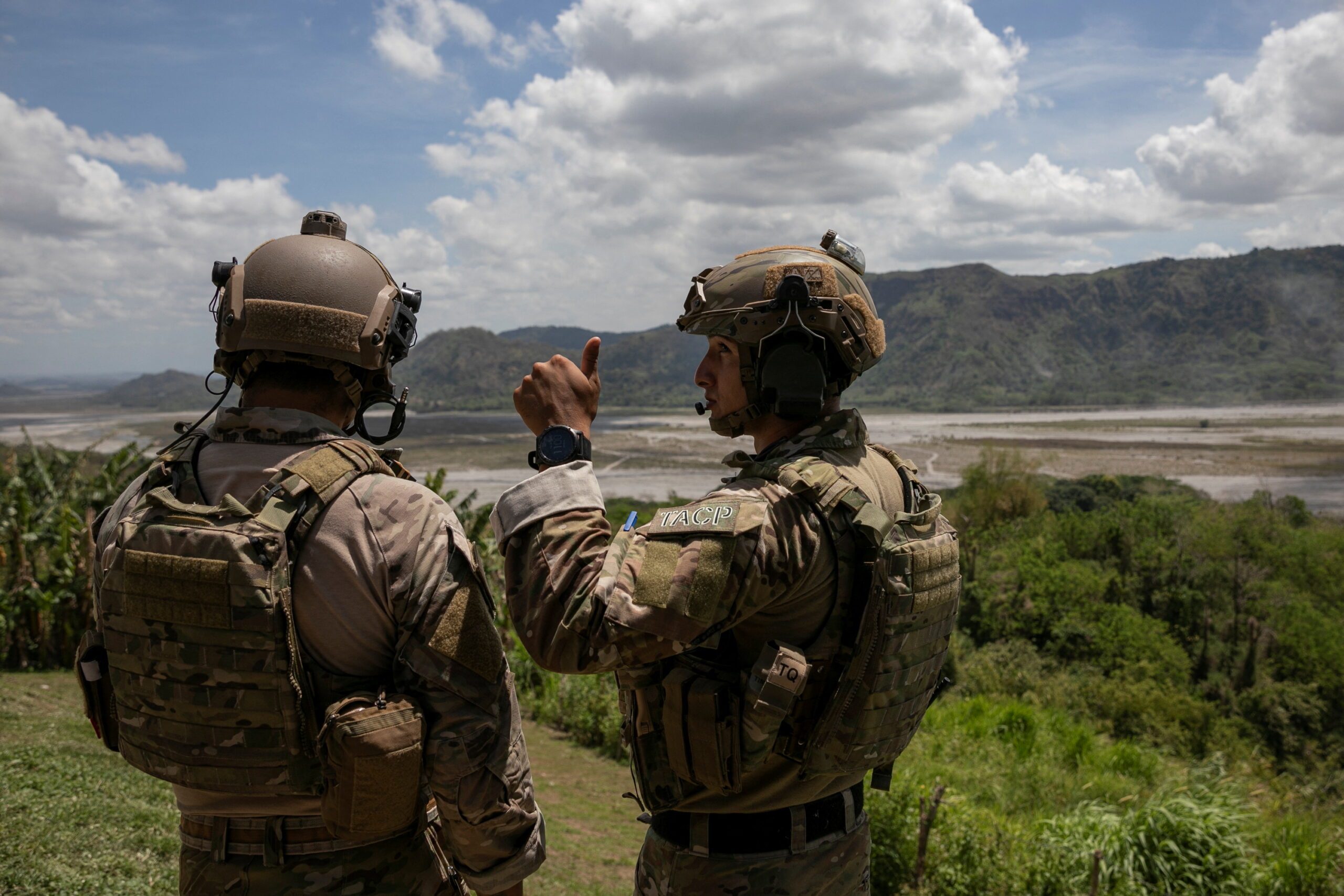SUMMARY
This is AI generated summarization, which may have errors. For context, always refer to the full article.

MANILA, Philippines – Philippine President Ferdinand Marcos Jr. said on Wednesday, March 22, that four new military bases under the Enhanced Defense Cooperation Agreement (EDCA) with the United States would be located in various parts of the Philippines, including in a province facing the South China Sea.
Marcos last month granted the United States access to four sites, on top of five existing locations under the 2014 EDCA, which comes amid China’s increasing assertiveness towards the South China Sea and self-ruled Taiwan.
“There are four extra sites scattered around the Philippines. There are some in the north, there are some around Palawan, there are some further south,” Marcos told reporters on the sidelines of the Philippine army’s founding anniversary.
EDCA allows US access to Philippine bases for joint training, pre-positioning of equipment and building of facilities such as runways, fuel storage and military housing, but it is not a permanent presence.
The Philippines and the United States would announce the locations of the bases soon, Marcos said, adding the sites would boost the country’s ability to defend the “eastern side” of its largest island, Luzon. Luzon is the closest main Philippine island to Taiwan.
China’s foreign ministry on Wednesday reiterated its stance that the U.S. side was increasing tensions by strengthening its military deployments in the region, adding countries should be “vigilant” and avoid being used by the U.S..
“We generally believe that defense cooperation between countries should be conducive to regional peace and stability, and should not be aimed at third parties or harm the interests of third parties,” spokesperson Wang Wenbin told reporters at a regular news briefing.
A former Philippine military chief has publicly said the United States had asked for access to bases in Isabela, Zambales and Cagayan, all on the island of Luzon, facing north towards Taiwan, and on Palawan in the southwest, near the disputed Spratly Islands in the South China Sea.
Some leaders of local governments at the potential EDCA sites have opposed Marcos’ decision, worried they would be dragged into a conflict if one arose between the United States and China over Taiwan.
But Marcos said his government has discussed with them the importance of the expanded US access and “why it will actually be good for their provinces.”
Washington has committed $80 million worth of infrastructure investments at the five existing sites – the Antonio Bautista Air Base in Palawan, Basa Air Base in Pampanga, Fort Magsaysay in Nueva Ecija, Benito Ebuen Air Base in Cebu and Lumbia Air Base in Mindanao.
Speaking before Philippine troops, Marcos told them to be vigilant as he said that the external threat to his country’s security was becoming more “complex” and “unpredictable.”
“Be vigilant against elements that will undermine our hard earned peace, our hard earned stability, continue to improve relations with your counterparts overseas,” Marcos said.
Marcos said he was aware of an “emerging threat” to his country’s territory, which he said would require “adjustments in our strategy.”
The Philippine leader did not give specifics, but he has previously cited the need to look beyond internal threats to security.
“The external security environment is becoming more complex. It is becoming more unpredictable,” Marcos said. – Rappler.com
Add a comment
How does this make you feel?
![[OPINION] EDCA: The bumpy road to restoring the PH-US alliance](https://www.rappler.com/tachyon/2023/02/tl-edca.png?fit=449%2C449)





![[In This Economy] Marcos’ POGO ban is popular, but will it work?](https://www.rappler.com/tachyon/2024/07/thought-leaders-marcos-pogo-ban.jpg?resize=257%2C257&crop=255px%2C0px%2C720px%2C720px)
![[Rappler Investigates] POGOs no-go as Typhoon Carina exits](https://www.rappler.com/tachyon/2024/07/newsletter-graphics-carina-pogo.jpg?resize=257%2C257&crop=424px%2C0px%2C1080px%2C1080px)



![[Hindi ito Marites] Japan: From enemy to bestie](https://www.rappler.com/tachyon/2024/07/Hindi-ito-Marites-TC-ls-7.jpg?resize=257%2C257&crop=415px%2C0px%2C1080px%2C1080px)

![[Just Saying] Invoke the Mutual Defense Treaty](https://www.rappler.com/tachyon/2024/06/TL-invoke-mutual-defense-treaty-June-25-2024.jpg?resize=257%2C257&crop_strategy=attention)
![[EDITORIAL] Paano nangyari na naging mayor ang isa umanong Chinese asset?](https://www.rappler.com/tachyon/2024/05/animated-bamban-mayor-illegal-carousel-revised.jpg?resize=257%2C257&crop_strategy=attention)














![[Just Saying] SONA 2024: Some disturbing points](https://www.rappler.com/tachyon/2024/07/TL-marcos-sona-points-july-23-2024.jpg?resize=257%2C257&crop=335px%2C0px%2C720px%2C720px)

There are no comments yet. Add your comment to start the conversation.